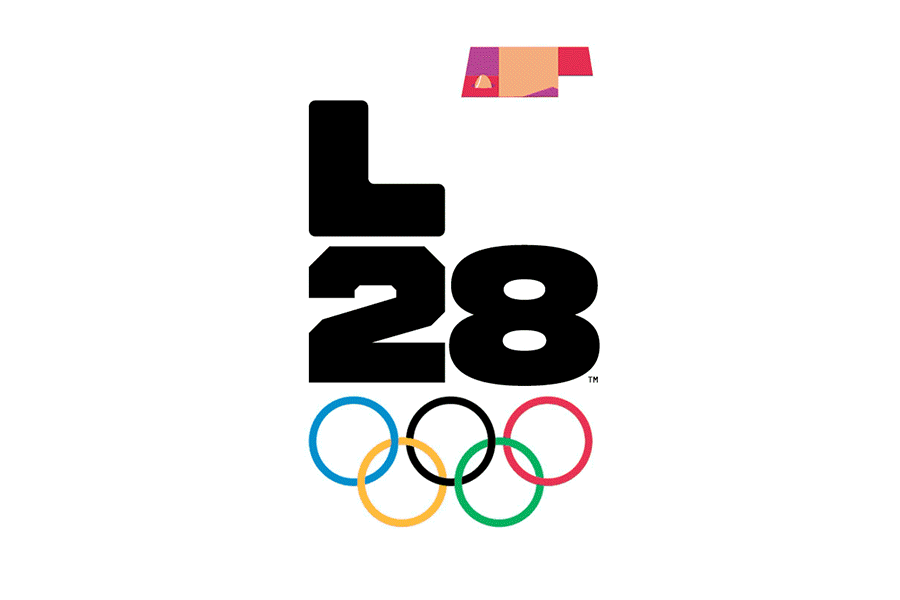Olympic tickets are hard to come by
- Share via
BEIJING -- It is not as though all 1.3 billion people in China are trying to attend the Olympics.
It just seems that way if you’re trying to book a seat. Tickets to the 2008 Games are proving to be among the most coveted in sporting history.
Money, luck, persistence, computer skills and, in some cases, the right political background are among the prerequisites.
Scalpers already are demanding as much as $40,000 a seat for the Aug. 8 opening ceremony, and tickets for popular sports such as basketball, gymnastics and pingpong (a particular Chinese favorite) are going for 10 times their face value.
The crushing demand for the roughly 7 million tickets that the Beijing Olympic Committee is putting on sale for the general public comes from inside and out: Americans and Europeans who have long dreamed of visiting China and think the Olympics will be the right occasion, and middle-class Chinese families who want to watch with pride as their nation celebrates what is widely touted as a coming-out party.
On the domestic market, ticket seekers have been frustrated by long lines and crashing computer systems. A disproportionate number of those who mastered the system were students and professionals in the information technology field who were able to elbow their way to the front of electronic queues.
“You could buy tickets with a couple of clicks of the mouse, but you had to know what you were doing,” said Li Dong, a 29-year-old executive at a Beijing computer firm.
Two rounds of lotteries to buy tickets have yielded far more losers than winners. The disappointed are pleading their case for tickets on Ganji.com, which is sort of the Craig’s List of China.
“I want my parents to see the Olympics. Please help me fulfill my dream,” advertised one dutiful son.
Another plaintive request came on behalf of China’s past Olympians.
“These retired athletes don’t have much money. They’re not good with computers. They won’t stand a chance on their own,” said Ji Ting, a 31-year-old former television executive who posted the ad for the Olympic Star Security Fund, a charity she set up last year to buy tickets for former Olympians.
The charity has so far been unable to purchase a single ticket through the regular distribution network, so it is imploring the Beijing organizers to donate a few dozen tickets -- at least enough to give to one gold medalist from each of China’s 23 provinces.
Since China has won 116 gold medals since 1984, that means that dozens of top Olympians could nonetheless be left standing outside the stadium.
Officials of the Beijing Organizing Committee for the Games of the XXIX Olympiad say the competition for tickets is a badge of success.
“The interest level is staggering. It’s way beyond what we saw in the last three Olympics,” said Jeffrey Ruffolo, a spokesman for the committee. He says he is getting “telephone calls and e-mails from friends across the planet -- friends I didn’t even know I had before -- asking for tickets.”
To a large extent the difficulties are the result of the organizers’ intentions to make the Games affordable to a broader swath of the Chinese public. With some tickets as cheap as $4, this is the most affordable Summer Olympics in years. (The lowest price at the last Summer Olympics, in 2004 in Athens, was $12.40.) The organizers also set aside nearly three-quarters of the tickets for the domestic market.
That means fewer to be distributed abroad. Tickets are allocated to the national Olympic committees based on the number of athletes they have participating, but only about half of their requests have been met. For other foreigners, they are even more scarce.
Not only are former Olympic medalists likely to be shut out, so are family members of competitors, coaches and sports professionals.
“I’ve never had this kind of problem before,” lamented Glen Marks, a 48-year-old gymnastics coach from Elk Grove Village, Ill. Marks has attended three Olympics and went to Shanghai in October to coach the Special Olympics.
The day tickets went on sale for the general public, Marks was on the website of CoSport, the official U.S. distributor of tickets, from 7 a.m. to 3 p.m., with little success. All he got was the same message, “Tickets currently SOLD OUT. Please check back for update.”
Unofficial ticket distributors -- companies that have figured out loopholes in anti-scalping laws -- post promising advertisements on the Internet, but have few tickets for the desired events, and those carry a high price. Marks is now corresponding with scalpers around the world as well as with a mysterious man in Beijing who goes by the name of Anthony and is offering tickets at face value.
One Beijing scalper offering tickets to men’s basketball and pingpong, along with the 110-meter hurdles in which Chinese heartthrob Liu Xiang is a contender, said he expected to get at least $2,000 each for tickets with a face value of $110 to $150. His ad on Ganji.com reads, “If you’re not financially strong, don’t bother me.”
Speaking by telephone on condition of anonymity, the scalper said, “There are plenty of potential buyers out there right now. By May and June, the bids will surely be higher. . . . Whoever is willing to pay the most will get my tickets.”
The scalper said he had managed to get his tickets through a Chinese lottery. To get around rules limiting the number of applications, this seller recruited a dozen friends to put in requests in the lottery under their own names.
The Beijing Olympic Committee has required prospective ticket buyers to supply their addresses, identification numbers and banking information. They also must have an account with at least $700.
Some ticket buyers also have been screened by police. One man who won the lottery for a coveted VIP ticket to the opening ceremony said the Ministry of Public Security contacted his employer.
“They checked my slate, asked my company for my political background, criminal record, if any, and religious belief. They wanted to know if I had any scandal or mistake, if I was convicted of a crime, if I had ever been imprisoned, if I was a Falun Gong member,” said the man, referring to the spiritual group frequently involved in anti-government protests.
The man, a civil servant who lives in southern China and asked not to be identified, had no problem passing, but was disturbed by the inquiry.
“One wrong answer and the ticket would have been gone. I hate such discrimination,” he said.
Olympic spokesman Ruffolo said he knew of no screening process for ticket buyers, but assumed that this man was investigated because his ticket was for the VIP section.
“If somebody’s going to be sitting next to a head of state, of course, you’ll expect the police to check him out first,” Ruffolo said.
He also said the Olympic committee was instituting new anti-scalping measures, such as requiring special permission for any transfer of opening- and closing-ceremony tickets.
“We want tickets to go to the people who are into the spirit of the Olympics, not to some guy who is trying to win a Willy Wonka golden ticket to make his fortune.”
“As in situations where there is great demand and a limited supply, there are sometimes complaints,” said Jiang Xiaoyu, executive vice president of the Beijing organizing committee. “Our principle is to be fair, open and transparent.”
Ticket sales for the Chinese public have been rife with problems.
An attempt in October to sell on a first-come, first-serve basis over the Internet proved a spectacular failure. The computer system crashed after receiving 8 million hits in the first hour, and the head of ticketing for the organized committee was fired.
Then, the Olympic committee tried in December a slow-motion approach in which applicants had a 20-day period in which to apply and could do so through the Bank of China if they couldn’t use the Internet. They received 4.5 million applications for 1.8 million tickets, but managed to sell only 450,000 of them.
The Olympic organizers have yet to explain what went wrong, although China’s official Xinhua news agency suggested the problem was that most people wanted tickets for the same events.
As for the Olympics, ticket scandals are almost as emblematic of the ritual as the torch lighting. In Sydney, Australia, in 2000, spectators were infuriated when it was revealed that a private gentleman’s club had gobbled up the best tickets.
At the 1988 Games in Calgary, Canada, an Olympics official was nicknamed “Jiminy Tickets” after he was found to be charging U.S. dollars for tickets priced in Canadian dollars and pocketing the difference.
The scandal in Athens four years ago was that so many seats were empty because they were not sold. At least that embarrassment looks unlikely to be repeated in Beijing.
Cathy Gao of The Times’ Beijing Bureau contributed to this report.
--
More to Read
Go beyond the scoreboard
Get the latest on L.A.'s teams in the daily Sports Report newsletter.
You may occasionally receive promotional content from the Los Angeles Times.







